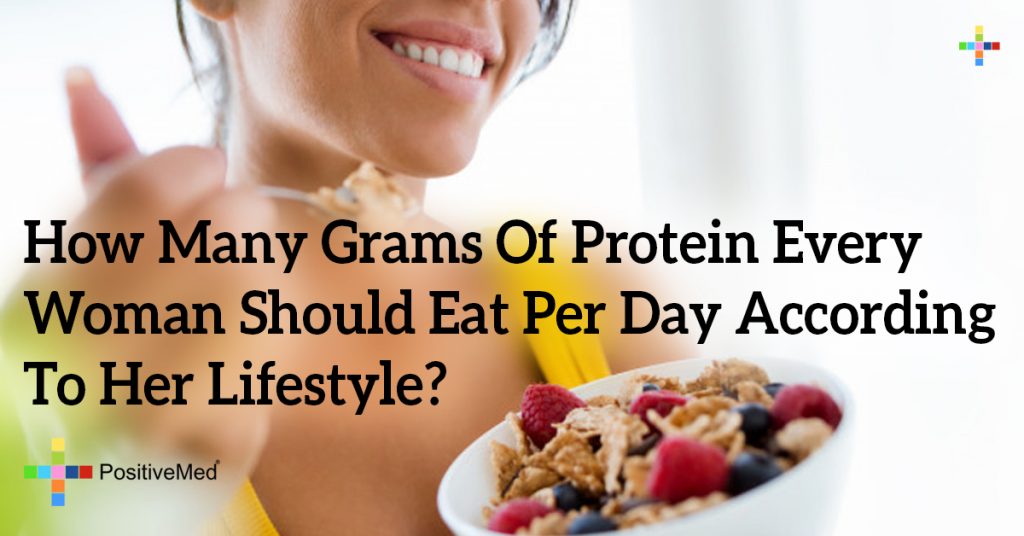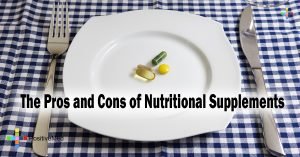
Protein is an incredibly important nutrient for everyone. Amino acids, the actual building blocks of protein, are also the building blocks of every cell in the human body. The human body can create a few of these amino acids, but most of them must come from food. If the body does not get enough protein then it cannot properly maintain body tissues or heal from injury or stress. A protein deficiency can have severe health consequences. There are also many factors that affect how much protein the body needs. These factors include primarily activity level and weight. For women, pregnancy also has an important impact on protein needs.

The current research on protein intake for woman recommends .36 grams of protein for each pound of body weight. This is an average across the board for everyone without considering any other factors. While this ageamount is just enough to prevent deficiency, there are many good reasons to consume more than this minimum. How much more depends on which of the following categories you consider yourself to be in.
Young Women with a Passive Lifestyle
This category probably accounts for the majority of adult women between the ages of 18 and 50. Yes, we can still call you young at 50! There is a good chance menopause has not yet begun. The average age for the onset of menopause in America is 51.
A passive lifestyle means that you are active enough to maintain a healthy weight. Maybe you take calm strolls in the park, walk your dog or have a bike ride now and then, but you are not going to the gym daily or trying to put on muscle mass. As a result, you don’t need much extra protein. Depending on your weight, an even 50 grams per day is an okay goal and you can probably go as high as 60 grams per day. There really is no true maximum for protein. It’s not like you’re going to get poisoned by a overdose. If you end up eating more than your body needs for building new tissue, the rest will be converted into energy.
Young and Active Women
This category is for those women who are more active than normal. They probably are athletes or go to the gym regularly. Their primary focus is on building muscle and keeping it. Building muscle requires more protein. Just like putting on an addition to your house, more building materials are required. Muscles grow by being worked, repairing and then expanding to get bigger and stronger. You don’t have to be a body builder to grow some healthy muscle mass. You will probably want 75 to 90 grams per day if you are in this category. Keep in mind, that if your activity level decreases, you may also want to decrease your protein intake back to around 60 grams or so.
RELATED ARTICLE: 5 Weird Things That Happen To You If You Eat Too Much Protein
Pregnant Women
Pregnancy brings about many important dietary needs for women. It is important to get the extra nutrition needed to properly support the growing fetus. Protein is critical. It is about building blocks again. The growing baby needs lots of extra protein to develop properly. The protein requirements for pregnant women shoot up to about 90 to 100 grams per day for the duration of the pregnancy, and more is usually better.
Menopausal Women
Passing the benchmark into menopause means many important changes for the body, and this impacts nutritional needs. The current dietary guidelines for protein intake do not take into account age for women. They are set at the same minimums as young, less active women. There is a current trend in studies and among professionals to recommend higher protein amounts for older women because the ability to properly metabolize protein decreases with age. They should at least match that of younger women at a healthy average of around 50 to 60 grams, which is slightly higher than the minimums.
While nobody needs to be paranoid about their protein intake, it is very important to get enough of this important nutrient. In general, more is usually better, but keep in mind that the body is very inefficient at converting protein to energy, and consuming too much can have negative effects. Every woman can benefit from getting a healthy amount of protein and balancing it out with healthy fats and a few carbs for energy.





